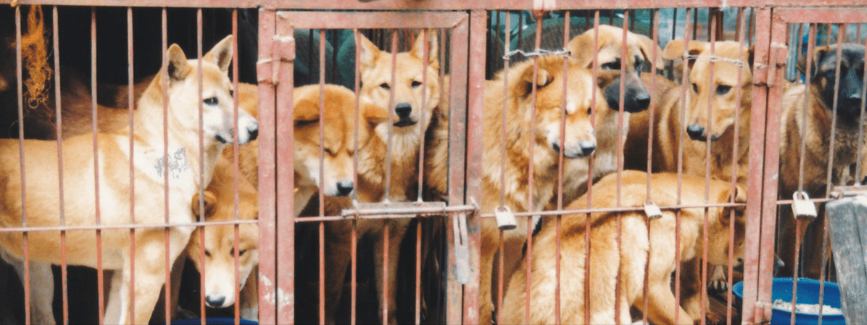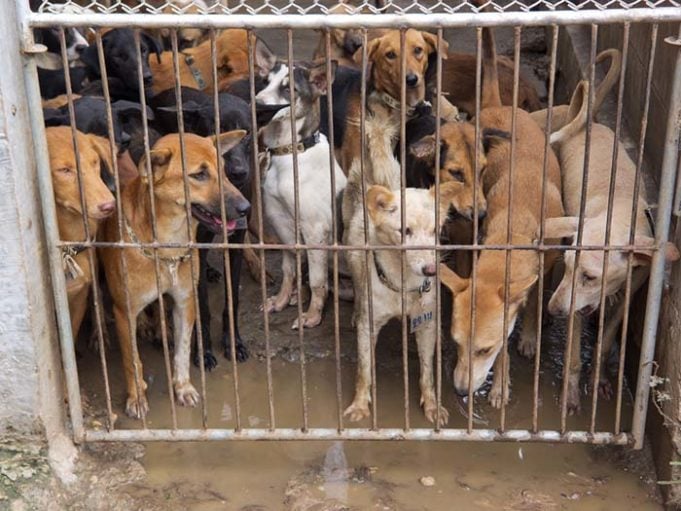Animal Rights activists in South Korea are making a major push to issue a ban on selling and consuming dog meat before the country hosts next month’s Olympics.
The PyeongChang Winter Olympics occur next month in South Korea, and South Koreans are preparing to possibly make a great cultural change to accommodate their international audience.
The Korea Association for Animal Protection is demanding that the sale and consumption of dog meat be prohibited. They are requesting this out of compassion for the companion animals, but are timing it to improve the reputation of South Korea as well.
Many visitors coming into the country for the Olympics will probably find it disturbing that Koreans eat dogs, according to the Korea Times.
The association says that dogs are man’s best friend, and therefore we should not be eating them. This is why they seek to end this habit in Korea once and for all.
RELATED: 57 Dogs Rescued from a Meat Market in South Korea
This is not the first time this has occurred. In 1984, the sale of dog meat was temporarily banned under leader Chun Doo-hwan, in preparation for the 1988 Seoul Summer Olympics.
The country’s biggest dog market, which held an astounding 80,000 animals, was already closed last February in preparation for the upcoming Olympics. As you may remember, July saw the freeing of nearly 150 dogs from the annually held Bok Nol festival, where Koreans practice the tradition of slaughtering and eating dogs. Animal rights outcries led to much international attention being devoted to this festival.

Photo: Korea Association for Animal Protection
South Korea unfortunately has an unregulated (and booming) canine farming business happening. There are no animal livestock laws which apply to this practice, and animal rights activists say that the farming conditions violate animal cruelty statutes.
South Korea argues that individuals do not regularly consume dog meat. However, according to the International Aid for Korean Animals, dog appears frequently on restaurant menus, and is a main ingredient not only in some traditional dishes but in certain medicines as well.
The entire industry exists in a sort of grey legal area, so regulation just does not occur. Because of this, it’s difficult to even get accurate numbers on the size of the industry. Some experts estimate that the industry produces about $2 billion every single year. The country’s Statistics Information Service reported in a 2010 agriculture consensus that there were over 100,000 farms holding almost 1 million dogs.
While this may shock many who read it, it is simply the culture of Korea. Thankfully, cultural norms may be changing there.
It appears that many younger Koreans are coming to see dogs as friends rather than a meal. A 2015 Gallup Korea poll determined that about 20 percent of South Korean men in their 20s reported eating dog meat, as compared to the 50 percent of men in their 50s and 60s.
If you would like to help in the effort to ban the practice of dog meat consumption in South Korea, please visit this page.













